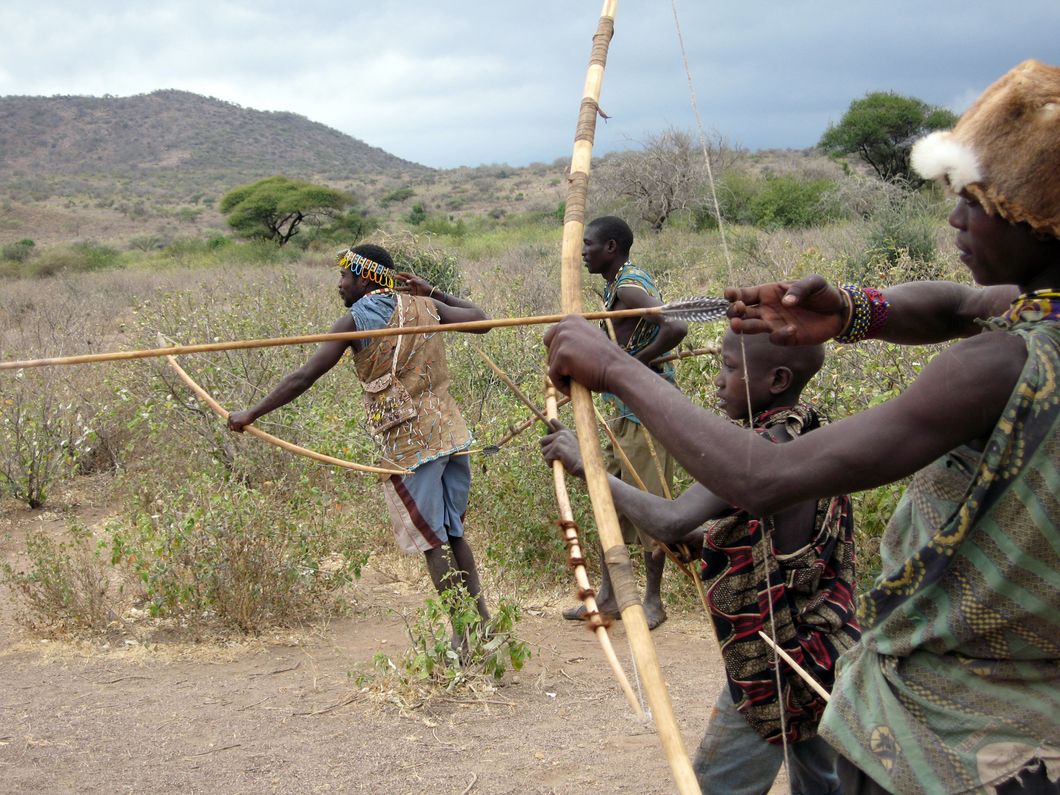Once seen as foragers hiding in a small group in the bushes of great African grassland, today Homo sapiens are the rulers of the planet. Their bodies are designed to find plants and fruits, hunt small animals and scavenge bone marrow. Biologically, they are incapable of preying on large animals, traveling across seas, or flying over the hills.
Nonetheless, today not only have they preyed upon many animals, but they have successfully wiped out some entire species, traveled across space, beat the speed of sound, and made complex types of machinery which help them do so. All their abilities have made them the king of the world.
However, the codes of their DNA remain the same. What change made this possible?
Among the various reasons, the major revolutions like the cognitive revolution and agricultural revolution changed the game for humans. Long ago, there were many species of the same genus "Homo" with names Neanderthals, Erectus, and so on. All of them resided in different parts of the world. They also had similar abilities like that of sapiens. They lived in groups, went hunting and were the favorite prey of lions.
Sapiens, on the other hand, resided on the great plains of Africa. But they had the spark of curiosity to travel, which led to things never being the same again. There are shreds of evidence that Homo sapiens traveled across the world. In their adventure, there were many stops in villages of other species. Sapiens did not enjoy these stops that very much, and instead of leaving, they massacred. They were killers from the first chapter of history.
What was so different about sapiens? Why couldn't the tall, muscular Neanderthals defeat them? The straight answer is massive cooperation.
Neanderthals also lived in a group of 20 or more, but they outmatched sapiens. Sapiens had psychologically developed the ability to work in mass. I am noting here "psychologically" because massive cooperation is not in sapiens' DNA like that of ants. They developed it! And amidst all the ways they did it, imaginary myths and ideas were the strongest elements that helped them do so.
First, they invented an imaginary hierarchy. Hierarchy only exists in the minds of humans. They created a scheme of whom to pay respect to and whom to give orders to. Looking long back through history, if a daughter of the royal family was killed, the culprit would be executed with no objection, however, if the same happened to the son of a servant, the murderer would be set free with few fines. This was an insane system, but for some reason, it kept the rules alive with fear and people cooperated. Even in the present case, there is no biological reason for humans in the present world to obey the police, the king, or the government. They are not related in any way. But sapiens do so because that is the imaginary system everyone believes in, which leads to the mutual alliance. With this alliance, you don't need every skill in the world to make things. Take the ships for example. Engineers working on the math barely have any skills compared to an erectus. But with the cooperation of metal workers, drivers, crane operators, and so on, together a ship is built.
Furthermore, the birth of myths and religion has also played a huge role in the idea of cooperation. Myths helped people to make sanity in the world they could hardly interpret. Ancient humans convicted bad spirits for diseases and prayed to the supernatural gods they imagined kept them safe from such disorders. The birth of religion does not only lie in such a small story. However, the ultimate result of a mass of people believing in the same idea was collaboration. With the same belief, a boy from any house can buy a gallon of milk from anyone in the village. In addition to the alliance, religion became the uppermost rank in the system of hierarchy. Who is higher than the army? Who governs the kings? What is the firm truth that no one can break? Religion became the answer and the most accepted imaginary world amongst humans.
Nonetheless, religion is not the only world humans imagine and believe in. Concepts like "money," "nationalism," and "MULAA account" are all imaginary and keep humans in a strong bond and mutual understanding. A paper from a bank can get you groceries, shouting "Jai Nepal" can help you bond with Nepalese, and a swipe from MULAA can get a Miami University washing machine to work.
All in all, humans ruled the animal kingdom in a matter of a few thousand years without a bit of change in their DNA. They have reached here by psychologically developing their mind into mutual understanding, hierarchy, curiosity, and so on. A forager of Savana took advantage of travel, communication, myths, and imaginary systems and reached the top without modifying their biological codes.












